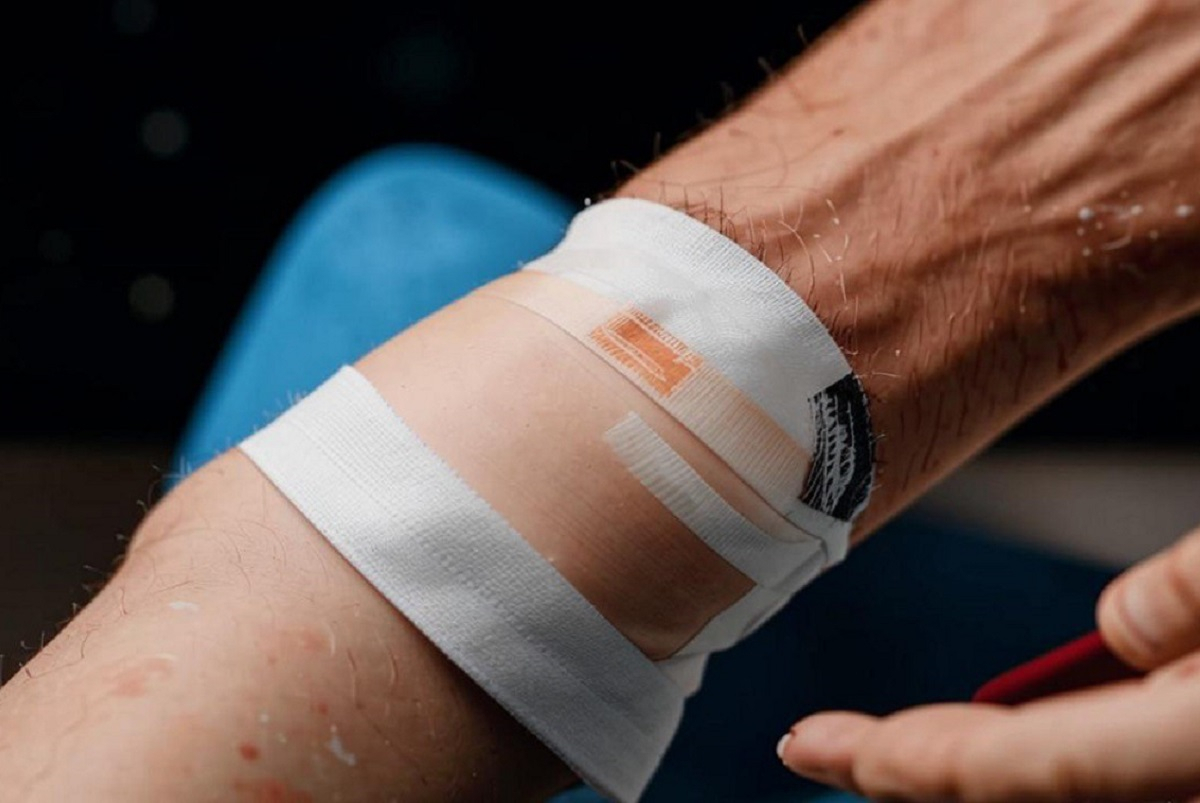Scientists from St Petersburg University develop highly effective hydrogel for wound healing
Chemists from St Petersburg University, in collaboration with other scientists from St Petersburg, have developed a hydrogel material for healing wounded skin. The hydrogel features high biocompatibility and antiviral and antitumour properties.

The skin is the largest organ of the human body and acts as a physical barrier against the external environment. Injury to the skin breaks this barrier and makes it vulnerable to bacterial infections. In some cases, without appropriate wound dressing, normal wound healing cannot be achieved. Improper wound management may lead to infections, scar formation, and fluid loss, which can impair the healing process leading to chronic or non-healing wounds.
The research findings are published in the International Journal of Biological Macromolecules.
This is where hydrogel materials prove valuable. They have a high water content and porosity, allowing for effective gas exchange. Additionally, these materials can conform to the surface of the wound, ensuring better contact with the skin and speeding up the healing process. Moreover, hydrogels have a high absorption capacity, which helps in quickly removing decay products from the wound.
However, this increased absorption can also weaken the mechanical properties of the material, causing it to break apart into separate pieces and reducing its adhesion to the body surface. The scientists from St Petersburg University believe that this issue can be addressed by reinforcing the material through chemical crosslinks. However, the use of crosslinking agents can negatively affect the safety of the resulting substance, as these agents may be toxic to the human body.
The chemists from St Petersburg University have developed a new non-toxic hydrogel with high biocompatibility.
The hydrogel we have developed possesses several key properties essential for wound healing, including antiviral, antitumour, anticoagulant, anti-inflammatory, non-immunogenic, and tissue adhesive properties. This achievement was made by blending two biopolymers, pullulan and chitosan, with the drug gentamicin.
Mayya Uspenskaya, Chief Research Associate in the Laboratory of Biohybrid Technologies at St Petersburg University
According to Mayya Uspenskaya, the use of chitosan allows for expanding the application range of pullulan, which on its own has relatively weak mechanical properties. Furthermore, the hydrogel developed by the scientists from St Petersburg University can be loaded with medications, such as antibiotics, to facilitate their delivery directly into the wound.
In their research, the University scientists also studied the deformation properties of the polymers used, the behaviour of the gels during the sorption process, their water retention capacity, and adhesion to the skin with drug release. Experiments demonstrated that the hydrogel developed at St Petersburg University can also be used to create therapeutic dressings when combined with the antimicrobial agent gentamicin.
The researchers attribute the high adhesion of the hydrogel to the density of hydrogen bonds and the electrostatic interactions of the polymers, which together enhance both the adhesion of the polymer to the wound and its mechanical strength.
St Petersburg University, the oldest university in Russia, was founded on 28 January (8 February) 1724. This is the day when Peter the Great issued a decree establishing the University and the Russian Academy of Sciences. Today, St Petersburg University is an internationally recognised centre for education, research and culture. In 2024, St Petersburg University celebrates its 300th anniversary.
The plan of events during the celebration of the anniversary of the University was approved at the meeting of the Organising Committee for the celebration of St Petersburg University’s 300th anniversary. The meeting was chaired by Dmitry Chernyshenko, Deputy Prime Minister of the Russian Federation. Among the events are: the naming of a minor planet in honour of St Petersburg University; the issuance of bank cards with a special design; and the branding of the aircraft of the Rossiya Airlines to name just a few. To mark the 300th anniversary of St Petersburg University, a postage stamp depicting the Twelve Collegia building and the monument to Count Sergey Uvarov was issued. Also, a Soyuz rocket bearing the symbols of the University was launched from the Baikonur Cosmodrome.
By the decision of the Governor of St Petersburg Alexander Beglov, 2024 is a year of the 300th anniversary of St Petersburg University in St Petersburg. On the day of the University’s 300th anniversary torches were lit on the Rostral Columns on the Spit of Vasilyevsky Island. St Petersburg University flags were raised on the Palace Bridge. The city public transport was decorated with the University’s symbols. During St Petersburg’s City Day celebrations in May 2024, St Petersburg University acted as a participating venue. Additionally, the University has launched a website dedicated to the anniversary. The website contains information about outstanding University staff, students, and alumni; scientific achievements; and details of events held as part of the celebration of the 300th anniversary of the University.

